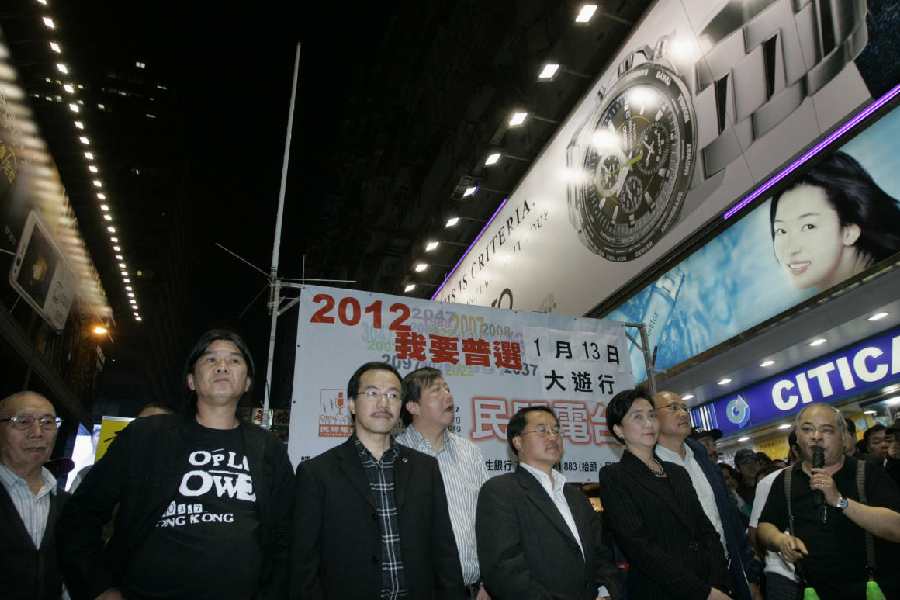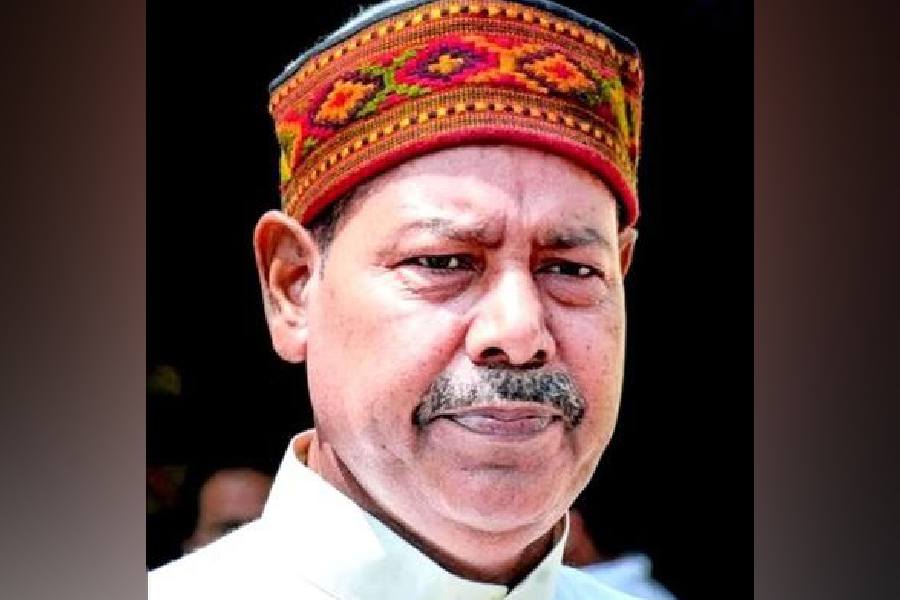Hong Kong's pro-democracy online Citizens' Radio station will cease operations on Friday owing to what its founder described as a "dangerous" political situation and the freezing of its bank account.
Launched in 2005 by veteran activist Tsang Kin-shing, the Cantonese-language broadcaster gained a steady following for its hard-hitting talkshows that were critical of authorities, as well as its years-long campaign for press freedom.
Its closure represents a further erosion of Hong Kong's media diversity, critics say, with a China-imposed national security law having already led to the shutting of other liberal outlets including the Apple Daily newspaper and Stand News.
"Citizens' Radio had no choice but to suspend broadcasting," Tsang said in a Facebook post, citing increasing pressures in the former British colony as authorities clamped down on dissent and arrested activists following a pro-democracy movement in 2019 that drew millions onto the streets.
"Faced with a cliff-like change in the political situation, the red line is everywhere, the situation is dangerous, and it is difficult to invite guests to the programme," Tsang wrote.
Tsang also said his radio station's bank account had been frozen, without giving specifics.
"The rent can only be paid until August," he said.
Hong Kong authorities have repeatedly said that media freedoms are respected and enshrined in city laws. The government denies cracking down on dissent but has said the protests in 2019 threatened the stability upon which the financial hub's economic success depends.
Media rights group Reporters Without Borders (RSF), ranked Hong Kong 140th out of 180 in its an annual global media freedom index this year, down from 73 before the national security law was enacted in 2020.
"For nearly two decades, Citizens' Radio has been an emblematic contributor to Hong Kong's independent broadcasting landscape and its shutdown would be an irreplaceable loss for media diversity," the press freedom group's East Asia director, Cédric Alviani, said in a statement.
Citizens' Radio submitted an application for a broadcasting licence in 2005 but it was never granted. It was later raided by the Office of the Communications Authority (OFCA) for allegedly using an illegal radio transmitter for FM broadcasting, but the station continued to broadcast online.
In 2019, four masked men wielding bats and hammers barged in to the radio station after smashing through its glass door. No arrest were made.
In a response to a query from Reuters, OFCA declined to comment specifically on the closure or the erosion of press freedom but said the radio station was internet-based and "not a sound broadcasting licensee" under telecommunications laws.
A national security case against Apple Daily and its tycoon founder, Jimmy Lai, will begin in September, that could see the veteran China critic jailed for life.
In October, a verdict will be handed down in a sedition trial against two editors at the now shuttered Stand News.
Hong Kong returned to Chinese rule in 1997 under a "one country, two systems" agreement aimed a preserving its freedoms for 50 years.











